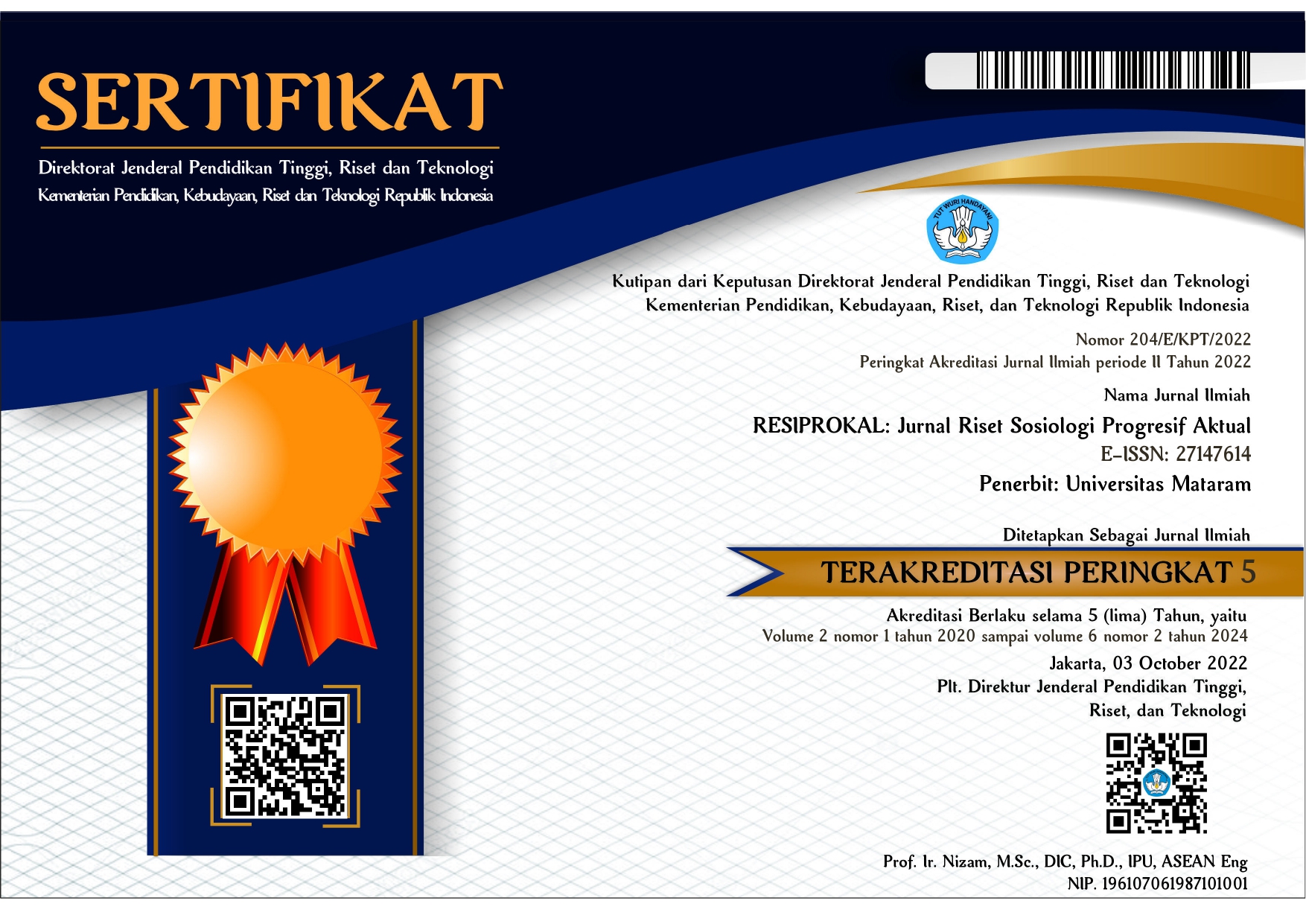Face Mask as Veil: Social Identity and Negotiation among Female Students in Indonesian Islamic University
DOI:
10.29303/resiprokal.v6i2.580Published:
2024-12-19Issue:
Vol. 6 No. 2 (2024): DesemberKeywords:
Face Mask, Social Identity, Islam, Female StudentArticles
Downloads
How to Cite
Tubangsa, I., & Anggriani Syarif, S. (2024). Face Mask as Veil: Social Identity and Negotiation among Female Students in Indonesian Islamic University. RESIPROKAL: Jurnal Riset Sosiologi Progresif Aktual, 6(2), 141–150. https://doi.org/10.29303/resiprokal.v6i2.580
Downloads
Download data is not yet available.









